Picture this. It is 3 AM and your entire e-commerce platform goes dark. Transactions stop. Revenue flatlines. Customer trust evaporates by the minute. The cause is not a sophisticated zero-day attack, but an expired SSL certificate that no one knew existed until production went offline.
This scenario is no longer rare. By 2026 the average large enterprise is managing hundreds of thousands of certificates and cryptographic keys across cloud platforms, SaaS services, microservices, APIs, containers, and devices. Machine identities now outnumber human identities by orders of magnitude, and they continue to grow as organizations adopt cloud-first architectures, automation, and connected systems.
What has not kept pace is how most organizations manage these identities. Many still rely on spreadsheets, calendar reminders, and tribal knowledge to track certificate lifecycles. That approach fails at scale. Expired certificates have already caused high-profile outages affecting global platforms and millions of users, and the frequency of these incidents continues to rise as certificate lifespans shrink and environments become more dynamic.
The risk is not limited to downtime. Broken or mismanaged certificates weaken encryption, disrupt authentication, and create opportunities for attackers to impersonate services or intercept traffic. In 2026 machine identity failures are both an availability risk and a security risk. Solving this problem requires more than better documentation. It requires dedicated machine identity management platforms that automate discovery, issuance, rotation, and renewal before failures occur.
Tool Comparison at a Glance
| Tool | Best For | Key Strength | Deployment Complexity |
|---|---|---|---|
| Keyfactor | Enterprise PKI at scale | Reduce manual work by up to 90% with automated workflows | Medium |
| CyberArk (formerly Venafi) | Machine-to-machine security | Control your TLS/SSL certificates and eliminate outages | Medium |
| AppViewX | Cloud-native environments | Multi-cloud certificate automation | Easy |
| Sectigo Certificate Manager | Cost-effective SSL management | Among the more budget-friendly options | Easy |
| DigiCert CertCentral | Web security and trust | Premium certificate authority with global recognition | Easy |
| Entrust | Complex hybrid environments | Enterprise PKI with legacy system support | Medium |
| GlobalSign | Developer-friendly automation | API-first certificate management | Medium |
Keyfactor — The Enterprise PKI Powerhouse
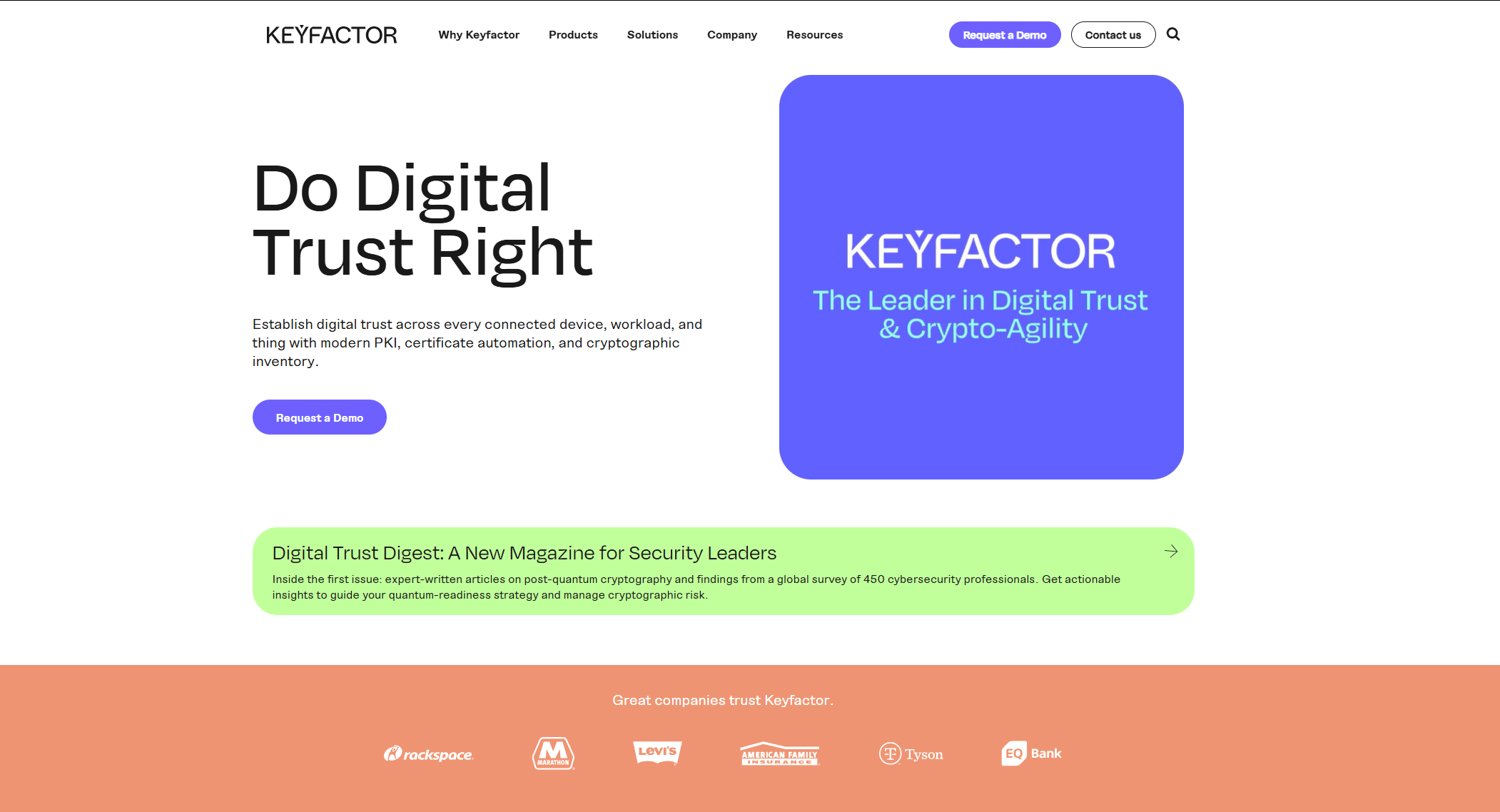
Best for: Large enterprises requiring comprehensive PKI infrastructure
Keyfactor is the machine and IoT identity platform for modern enterprises, helping security teams manage cryptography as critical infrastructure by simplifying PKI, automating certificate lifecycle management, and enabling crypto-agility at scale. Their Command platform provides centralized visibility across all certificate authorities, making it ideal for organizations with complex, multi-vendor environments.
What sets it apart:
- Single control plane for any private, public or cloud-based certificate authority (CA)
- Post-quantum cryptography readiness
- End-to-end visibility and certificate lifecycle automation
- Robust API ecosystem for DevOps integration
Deployment reality: Moderate complexity, typically 2-3 months for full enterprise deployment
Trade-offs: Requires dedicated security team resources; premium pricing model
CyberArk Machine Identity Security (formerly Venafi)
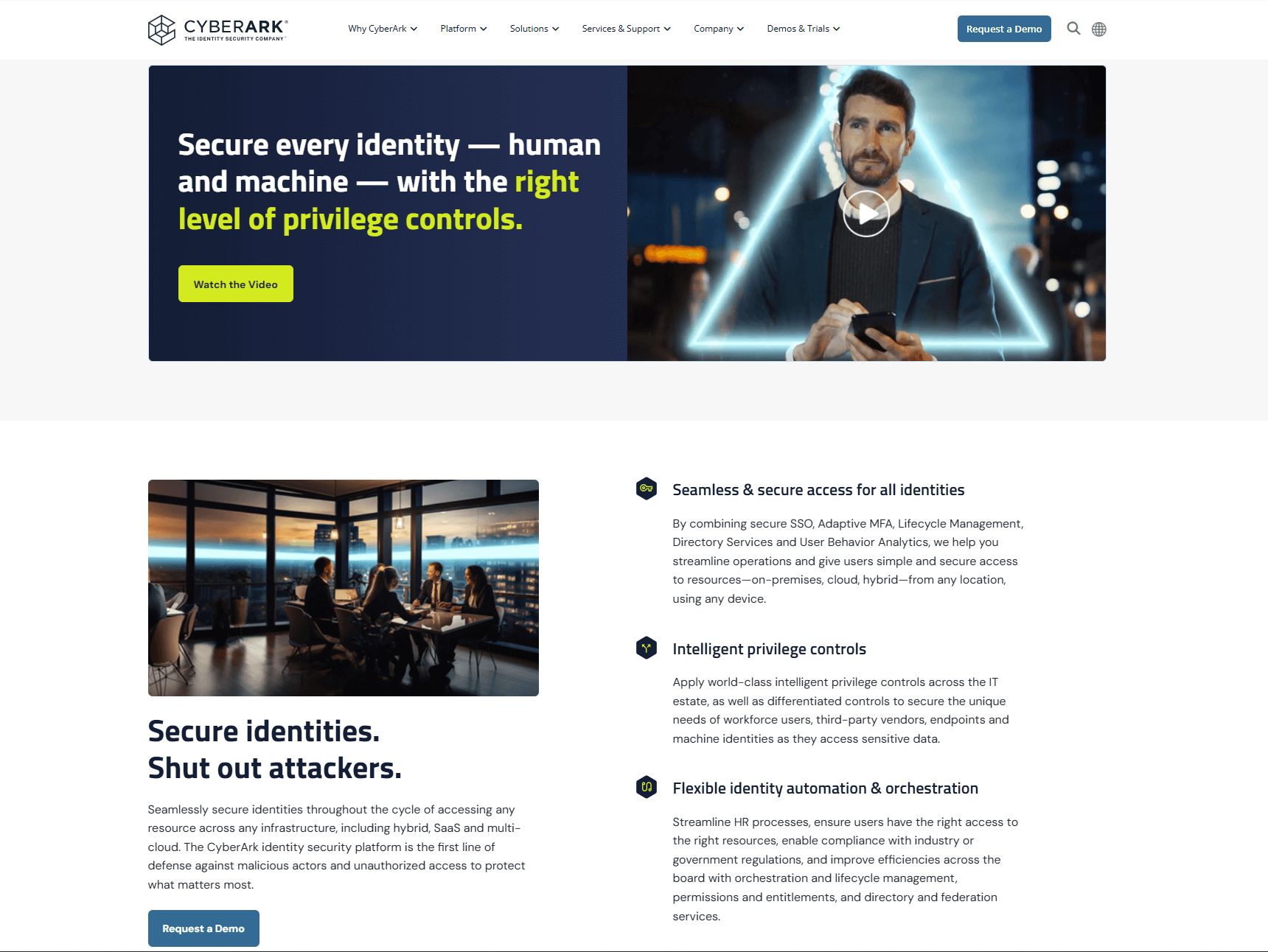
Best for: Organizations prioritizing machine-to-machine communication security
Important Update: Venafi was acquired by CyberArk and is now part of their identity security portfolio. Their cloud-native tools manage, monitor, and issue certificates, protecting critical infrastructure from outages and securing machine identities.
What sets it apart:
- Industry-leading SSL/TLS certificate discovery
- High performing, lightweight micro-service to issue machine identities quickly
- Strong focus on preventing certificate-related outages
- Advanced threat intelligence for certificate abuse detection
Deployment reality: Can be complex in hybrid environments; typically 1-2 months
Trade-offs: Enterprise-focused pricing; may be overkill for smaller organizations
AppViewX — Cloud-First Certificate Automation
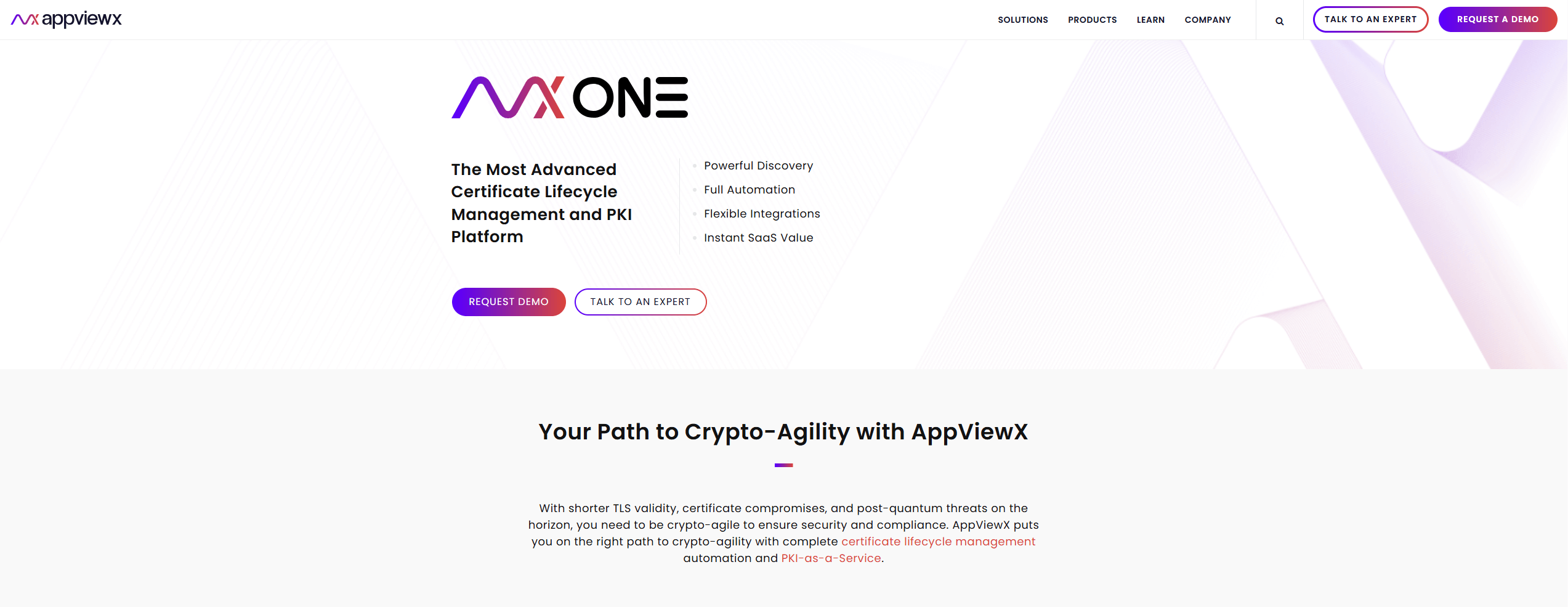
Best for: Organizations with cloud-native or hybrid cloud architectures
AppViewX has positioned itself as the go-to solution for cloud-centric certificate management, offering native integrations with AWS, Azure, and Google Cloud Platform. Their platform excels at automating certificate provisioning in containerized environments.
What sets it apart:
- Native Kubernetes and container support
- Multi-cloud certificate orchestration
- DevOps-friendly automation workflows
- Strong focus on cloud security compliance
Deployment reality: Quick deployment in cloud environments (2-4 weeks)
Trade-offs: Less comprehensive for on-premises legacy systems
Sectigo Certificate Manager — The Cost-Effective Choice
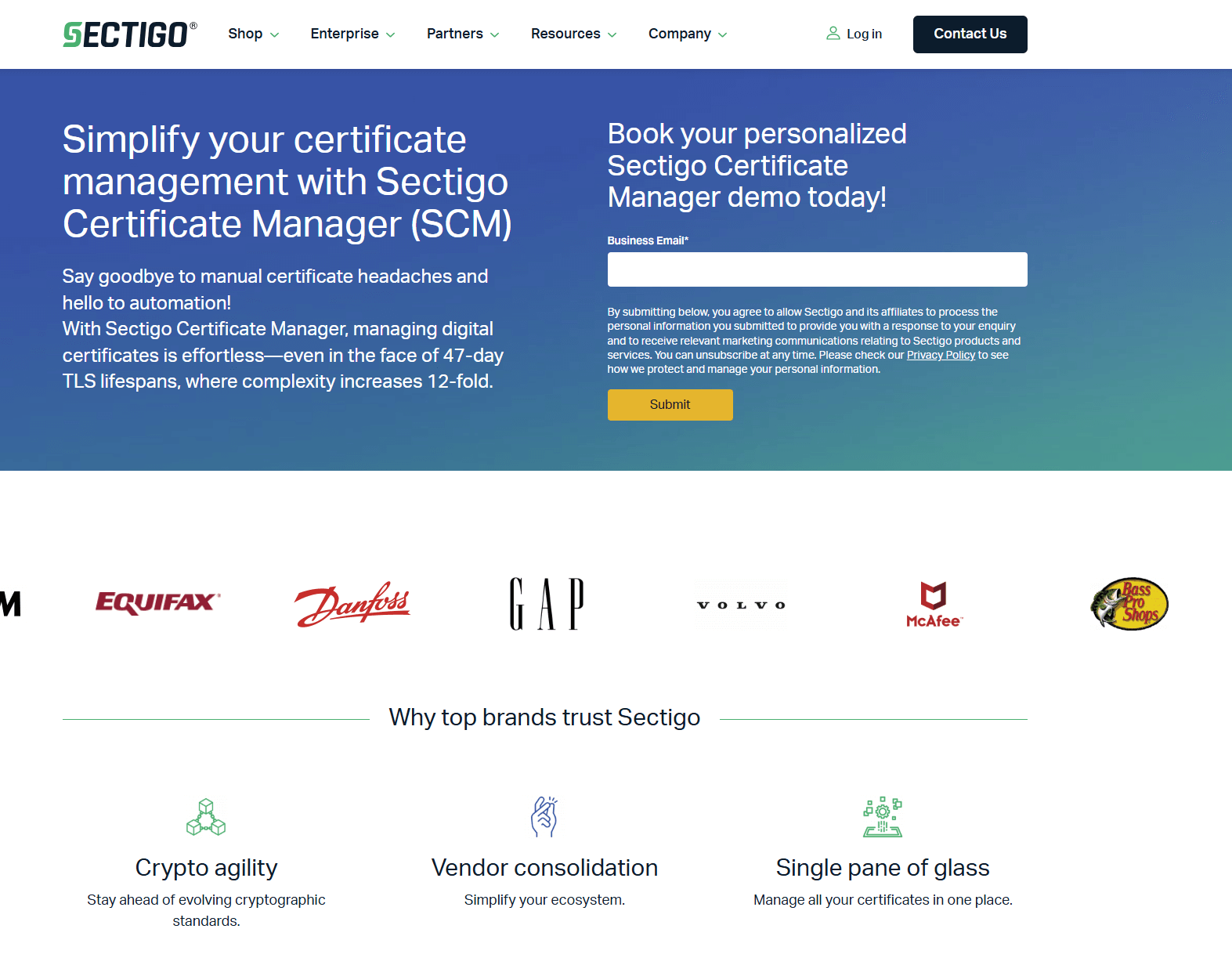
Best for: Small to medium businesses seeking affordable certificate management
Sectigo is among the more budget-friendly options while still providing enterprise-grade certificate management capabilities. Their IoT Manager specifically targets device identity management for connected devices.
What sets it apart:
- Competitive pricing without sacrificing security
- Simplified certificate lifecycle management
- Strong IoT device identity focus
- User-friendly interface for non-PKI experts
Deployment reality: Quick setup (1-2 weeks)
Trade-offs: Limited advanced PKI features compared to enterprise solutions
DigiCert CertCentral — The Trust Leader

Best for: Organizations where brand trust and global recognition matter
DigiCert has built its reputation on being one of the most trusted certificate authorities globally. DigiCert CertCentral is considered the best overall alternative in the certificate management space, offering comprehensive certificate lifecycle management with exceptional customer support.
What sets it apart:
- Premium certificate authority with 99.9% browser compatibility
- Comprehensive certificate lifecycle automation
- Industry-leading customer support
- Strong compliance and audit capabilities
Deployment reality: Quick deployment (1-2 weeks)
Trade-offs: Premium pricing; primarily web-focused (less comprehensive for other certificate types)
Entrust — The Hybrid Environment Specialist
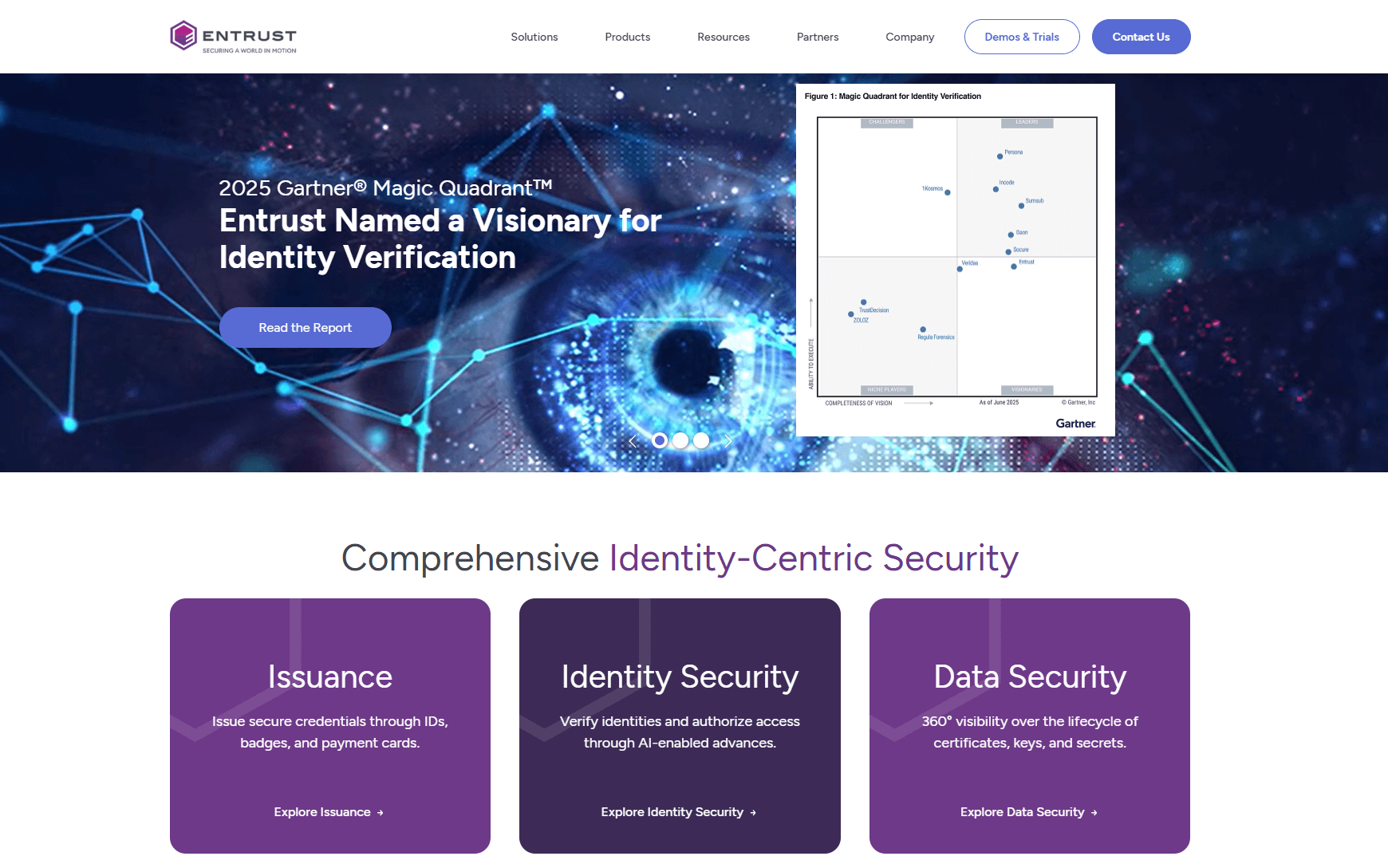
Best for: Complex environments mixing legacy systems with modern infrastructure
Entrust has decades of experience in PKI and has evolved to support modern certificate management needs while maintaining compatibility with legacy systems. They excel in environments where regulatory compliance is critical.
What sets it apart:
- Strong legacy system integration
- Comprehensive compliance support (FIPS, Common Criteria)
- Robust on-premises PKI capabilities
- Government and high-security industry focus
Deployment reality: Moderate complexity (1-3 months depending on environment)
Trade-offs: Can be complex to configure; less cloud-native than newer solutions
GlobalSign — The Developer's Choice
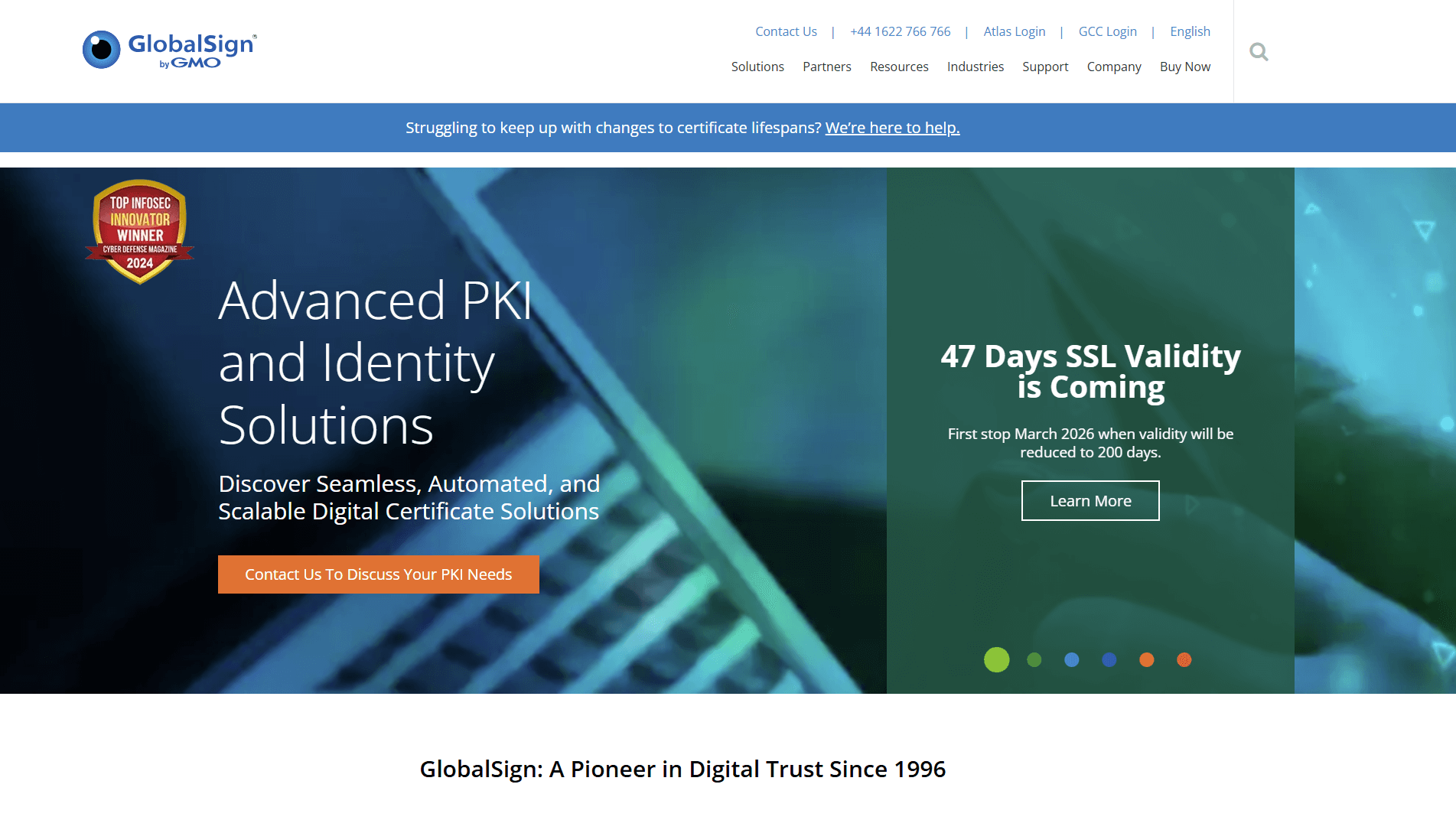
Best for: Development teams needing programmatic certificate management
GlobalSign has invested heavily in API-first certificate management, making it particularly attractive to development teams and organizations practicing DevOps. Their automation capabilities are designed with modern software development workflows in mind.
What sets it apart:
- Comprehensive REST API for all certificate operations
- Strong DevOps tool integrations
- Automated certificate enrollment workflows
- Competitive pricing for development environments
Deployment reality: Moderate setup (2-4 weeks)
Trade-offs: May lack some enterprise governance features
Decision Framework: Which Tool Fits Your Reality?
| Your Situation | Recommended Tool | Why This Matters |
|---|---|---|
| Managing 50,000+ certificates across multiple CAs | Keyfactor | Single control plane for any private, public or cloud-based certificate authority |
| Cloud-native architecture with Kubernetes | AppViewX | Native container and multi-cloud support |
| Limited budget but need solid certificate management | Sectigo | Budget-friendly options without sacrificing core functionality |
| High-trust public-facing applications | DigiCert | Premium CA with maximum browser trust |
| Legacy systems mixed with modern infrastructure | Entrust | Proven compatibility with diverse environments |
| Development-heavy organization | GlobalSign | API-first approach matches DevOps workflows |
The Real Cost of Getting This Wrong
Before diving into features and pricing, understand what's at stake:
- Downtime costs: Certificate outages can be prevented with proactive visibility and automation
- Security breaches: Expired certificates create attack vectors
- Compliance violations: Many regulations require proper certificate management
- Operational overhead: Manual management doesn't scale with digital transformation
Making the Final Decision
Your choice should align with three critical factors:
- Scale: How many certificates will you manage in 2-3 years, not just today
- Environment: Cloud-native, hybrid, or primarily on-premises
- Team expertise: Do you have dedicated PKI resources or need user-friendly tools
By 2026 machine identity management has become foundational infrastructure, not a niche security concern. Organizations that still treat certificates as a background task are accepting unnecessary operational and security risk. The question is no longer whether automation is needed, but how quickly it can be implemented without disrupting critical systems.
Keyfactor is best suited for large enterprises managing massive certificate volumes across multiple certificate authorities and environments. CyberArk’s machine identity platform excels where preventing outages and securing machine-to-machine communication is a top priority. AppViewX is a strong fit for cloud-native teams that need Kubernetes and multi-cloud automation. Sectigo offers a practical entry point for organizations that need solid lifecycle management without enterprise-level cost. DigiCert stands out where public trust, browser compatibility, and global reach matter most. Entrust remains a strong option for regulated industries and hybrid environments with legacy systems. GlobalSign appeals to development-heavy teams that want API-first automation embedded into CI and CD workflows.
The most successful organizations approach this as a lifecycle problem, not a certificate purchase problem. They start with discovery, automate renewals for the most critical systems first, and expand governance as scale increases. They also plan for crypto agility, knowing that algorithms, standards, and compliance requirements will continue to change.
Certificate outages are rarely caused by advanced attackers. They are caused by lack of visibility and automation. In an environment where machine identities underpin every transaction, service, and connection, managing them manually is no longer acceptable. The cost of getting this right is predictable. The cost of getting it wrong is sudden, public, and expensive.


